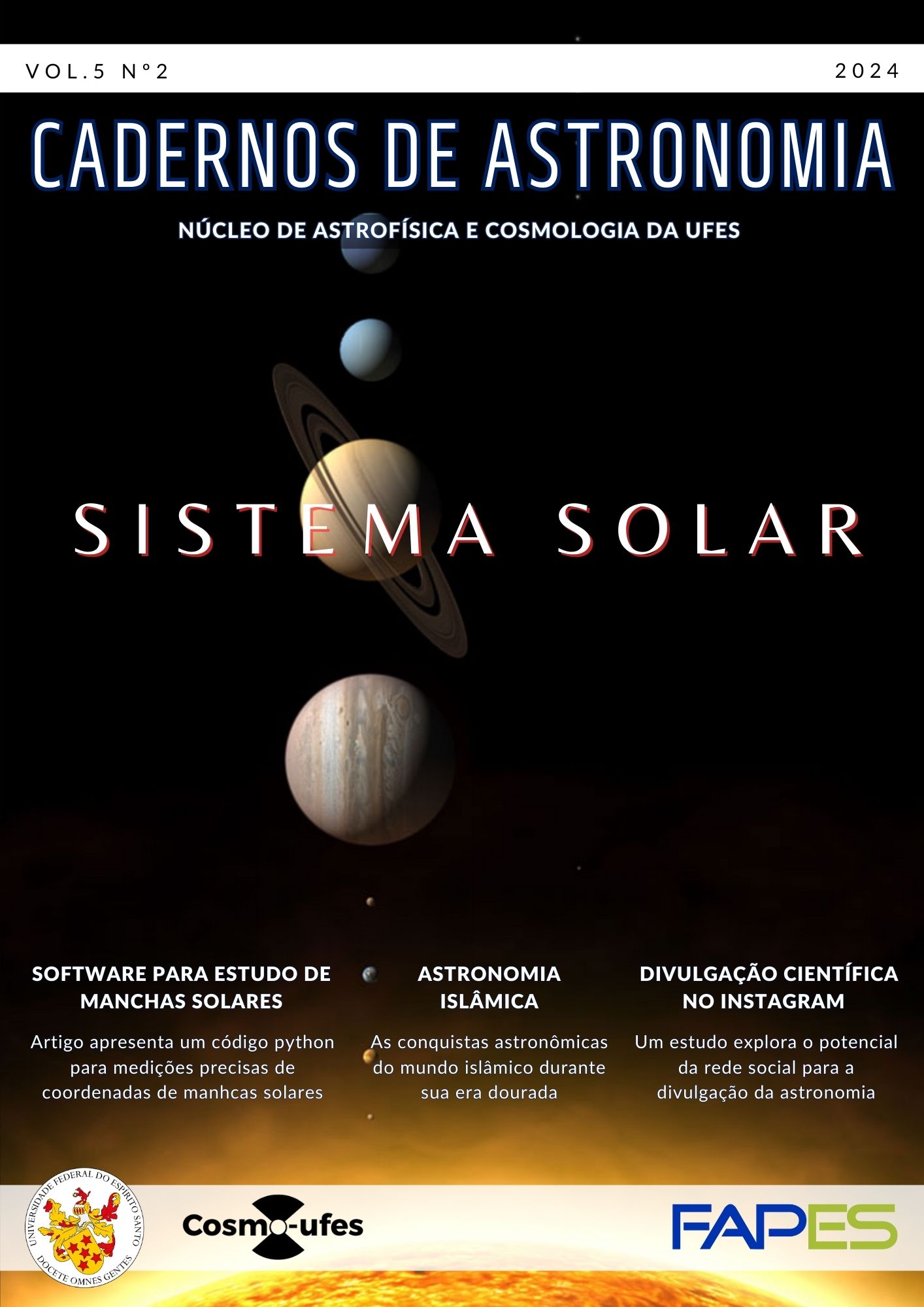Astronomia no mundo islâmico: uma perspectiva européia
DOI:
https://doi.org/10.47456/Cad.Astro.v5n2.45445Palavras-chave:
história da ciência, astronomia, mundo islâmicoResumo
As conquistas matemáticas e astronômicas do mundo islâmico durante sua era dourada são brevemente expostas. Este artigo é baseado na palestra convidada proferida remotamente no encontro astronômico ICRANET-Isfahan, que ocorreu de 2 a 5 de novembro de 2021, que, por sua vez, reproduz partes importantes de um dos capítulos do meu livro, Our Celestial Clockwork, publicado recentemente (2021) pela World Scientific.
Referências
R. Kerner, Our Celestial Clockwork: From Ancient Origins to Modern Astronomy of the Solar System (World Scientific, 2019). DOI: https://doi.org/10.1142/11674
G. Saliba, Islamic Science and the Making of the European Renaissance (The MIT Press, 2007). DOI: https://doi.org/10.7551/mitpress/3981.001.0001
J. Berggren, Episodes in the Mathematics of Medieval Islam (Springer New York, 2016). DOI: https://doi.org/10.1007/978-1-4939-3780-6
V. J. Katz, A History of Mathematics: An Introduction, Katz Series (Addison-Wesley, 2009), 2a ed.
G. Saliba, A History of Arabic Astronomy: Planetary Theories During the Golden Age of Islam (NYU Press, 1994).
S. P. Blake, Astronomy and Astrology in the Islamic World (Edinburgh University Press, 2016). DOI: https://doi.org/10.1515/9780748649112
B. Lewis, What Went Wrong?: Western Impact and Middle Eastern Response (Oxford University Press, 2002). DOI: https://doi.org/10.1093/oso/9780195144208.001.0001
Downloads
Publicado
Edição
Seção
Licença
Copyright (c) 2024 Richard Kerner

Este trabalho está licenciado sob uma licença Creative Commons Attribution 4.0 International License.






